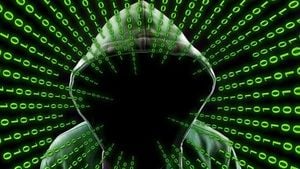In a controversial ruling that has stirred significant debate within South Korea's judiciary, Chief Justice Cho Hee-dae of the Supreme Court presided over the appeal trial concerning presidential candidate Lee Jae-myung's alleged violations of the Public Official Election Act on May 1, 2025. The ruling has been met with fierce criticism from legal experts and judges alike, who argue that the decision undermines the political neutrality of the judiciary and could have far-reaching implications for democracy in the nation.
Cho Hee-dae's ruling has drawn attention for what many see as a troubling precedent, as the core of the Supreme Court's decision appears to hinge on subjective perceptions of public impression. Critics, including political science professor Kwon Hyuk-yong, argue that this approach reflects a significant misunderstanding of the principles of public interest and democracy. "The impression is inherently subjective," Kwon stated, suggesting that the court's lack of a rigorous legal foundation for its ruling raises serious concerns about the integrity of the decision-making process.
Furthermore, Kwon emphasized that the timing of the ruling—just one month before the presidential election—could lead to a scenario where the Supreme Court effectively appoints a president rather than allowing the electorate to make that choice. This situation, he warns, could erode the democratic legitimacy of the election process itself.
In a pointed critique, Kim Joo-ok, a senior judge at the Seoul Central District Court, took to the court's internal network on May 7, 2025, to call for Cho's resignation. He expressed concern that Cho had positioned himself as the "vanguard of anti-Lee Jae-myung" political maneuvering, stating that the Chief Justice must take responsibility for the doubts surrounding the judiciary's political neutrality. "Has there ever been a precedent where the Chief Justice intervened so actively in a specific case?" Kim questioned, highlighting the unprecedented nature of Cho's involvement.
Kim further argued that the Supreme Court's ruling could unduly influence voter perceptions and decisions, potentially leading to a miscarriage of justice. "The belief that a guilty ruling against a candidate would lead voters to withdraw their support is a gross miscalculation," he asserted, criticizing the court for its overconfidence and lack of awareness regarding the political ramifications of its decisions.
Adding to the chorus of discontent, Noh Hyung-nam, another senior judge from the Busan District Court, expressed his dismay at the Supreme Court's approach. He articulated that the ruling seemed to convey a dismissive attitude towards the electorate, framing it as a statement that undermines the sovereignty of the people. "It feels as if the court is saying, 'You guys are not the sovereign; you are my feet,'" Noh remarked, highlighting the perceived disconnect between the judiciary and the public.
On the other hand, not all reactions to the ruling have been critical. Nam Joon-woo, a senior judge from the Uijeongbu District Court, expressed respect for the Supreme Court's decision, suggesting that it was not merely a matter of public opinion but rather a nuanced legal determination. His comments reflect a divide within the judiciary regarding the interpretation and implications of the ruling.
The controversy surrounding Cho Hee-dae's leadership has prompted calls for a nationwide judges' conference to address the perceived crisis in judicial integrity and political neutrality. Legal experts argue that the current situation poses a significant threat to the public's trust in the judicial system, which is foundational to the functioning of democracy. As Kim Joo-ok stated, the only way to restore confidence is through an internal reckoning and potential accountability for those involved in the ruling.
Meanwhile, the political landscape remains tense as the implications of the Supreme Court's ruling continue to unfold. On May 6, 2025, lawyer Cho Young-joon filed a constitutional complaint with the Constitutional Court, challenging the application of the Public Official Election Act's provisions regarding candidate registration and election invalidation as unconstitutional. This legal challenge further complicates the already contentious atmosphere surrounding the upcoming elections.
As the nation approaches the presidential election, the ramifications of the Supreme Court's ruling are likely to be felt across the political spectrum. Many are left questioning the integrity of the judicial process and the extent to which the judiciary should involve itself in political matters. The potential for a significant backlash against the court's decision looms large, as public sentiment swells around issues of fairness and democratic representation.
The Supreme Court's ruling on Lee Jae-myung's case not only raises questions about the judiciary's role in politics but also highlights the ongoing struggle for democratic principles in South Korea. With the specter of judicial overreach haunting the electoral process, citizens are left to ponder the implications of a system where the balance of power may be skewed by judicial decisions rather than the will of the people.
In light of these developments, the question remains: how should the judiciary navigate its role in a democratic society without undermining the very principles it is meant to uphold? As the political landscape evolves and the election approaches, the answers to this question will be crucial in shaping the future of democracy in South Korea.
![조희대 대법원은 국민을 깔보는 것인가 [왜냐면]](https://thumbor.evrimagaci.org/zSWOXDNpNpx3juh-6-fcHUaZhJw=/200x0/tpg%2Fsources%2F93fb2a18-0717-4c8a-ac27-b798be736cd0.jpeg)



